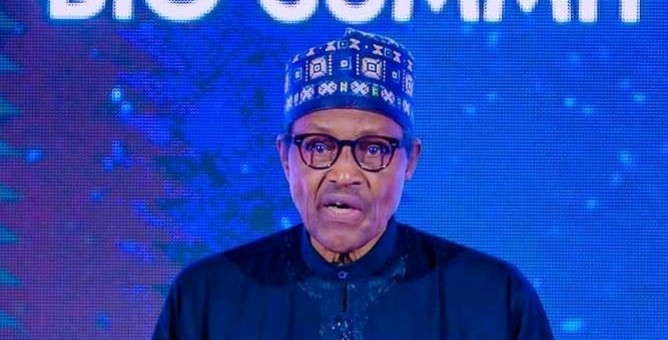Nigerian President, Muhammadu Buhari has said the provision of infrastructure, particularly housing for low income earners, is one of the pillars of the Change Project of the APC Administration.
The President, who was represented by the Minister of Information and Culture, Alhaji Lai Mohammed, said this in Ilorin on Friday at the official commissioning of a housing estate in Kwara State, under the Phase One of the National Housing Programme of the Federal Government.

“When our party, the All Progressives Congress (APC), sought your mandate to form the government in 2015, one of the things we promised was change. This housing estate is an example of the fulfillment of that promise of change,” he said.
The President said the progressive ideals of the government seek to achieve one primary objective, which is to improve human condition, noting that the housing estate has achieved that in many ways.
“The Micro, Small and Medium size businesses that drive our economy
were the ones that won the contracts to build these houses.
“Not only did their successful bids offer an opportunity for these companies and their employees, through them we have unleashed a value chain of economic activities that improved the conditions of the ordinary Nigerians,” he said.
The President expressed delight at how the housing project improved the means of livelihood of many Nigerians who benefited from sub-contracts for the supply of building materials, from sand to cement, roofing and plumbing material to doors and electrical fitting.

He said through the project, the ordinary Nigerians at the bottom of the pyramid, such as artisans, builders, skilled and unskilled workers and food vendors, were not left out of the economic value chain.
“These are some of the people our country remains committed to moving towards prosperity and away from poverty, and we are already reaching them by providing opportunities for employment for those who were hitherto unemployed,” the President said.
He commended the Kwara State Government for providing the land for the project, emphasizing that the gesture was a good example of some of the developmental possibilities that inter-governmental collaboration can produce.
The housing project, which started in 2016, consists of 48 units of 2 bedroom bungalows; 20 units of 3 bedroom bungalows; 4 units of 1 bedroom and 4 units of 3 bedroom using stabilized earth.
In addition, the scope of work includes the construction of internal roads and drainages, water reticulation and construction of a central borehole with overhead tanks and the provision of electricity.












